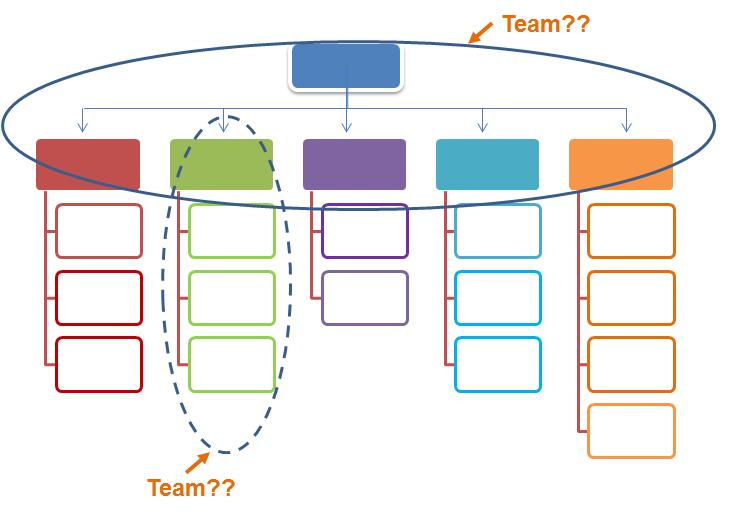Team ‘Karma’ in strategy execution
Team ‘Karma’ – First & most important step for your organization’s success in strategy execution
In cricket, a batsman in good form compensates for the runs missed by his partner. Let’s say in a situation where they need 26 runs to win in 2 overs. They don’t set individual targets such as 13 runs per person in 6 balls. Instead, one takes the lead and other does his best.
We observe similar phenomenon in many other sports and arts too. In a live theatre performance, when an artist forgets his scripts, co-artists make it up by altering their scripts instantly to make sure the message is conveyed and the show is successful.
I recently asked a team of senior management staff of an enterprise to write down the names of key team members. Their lists mostly contained names of their subordinates. No one from the senior management appeared in each other’s list.
So the CEO feels his direct reports are his team, but the direct reports don’t feel CEO as part of their team. Irony isn’t it!
Each member of the leadership team seems to have a feeling that they are representing their respective teams in Management Committee. So they are there to defend, protect, project, celebrate, complain and express the interests of their business unit (or department).

When I challenged them on their definition of team, some were confused and remaining reluctant. Perhaps such a transforming, yet simple thought cannot be accepted in a single go.
Some points to ponder as a leader of the senior leadership
- Are you willing to take up initiatives where there is lack of clarity or clear demarcation of ownership with your peers?
- Do you care for the success of other business units or departments?
- Are you confident that you can willfully persuade your peers without undue influence?
- Would you voice for something of concern for the organization, that is beyond your purview or assume that to poke your nose into other’s business is poor etiquette and stay away?
- Are you genuinely open to view points from peers that contradict yours, especially if it’s about your business?
- Do you use senior leadership meetings to push your department’s agenda or instead push organizational priorities into your department’s agenda?
- Do you allocate your best resource for projects led by other departments or just a head for them to count?
These are all inconvenient questions to answer. But to gain some common understanding and move forward is very important for the senior leadership team because like individuals, teams have their Karmas too. They bear fruits of their actions and decisions. Individuals of the team ripe the fruits of their team’s actions or decisions – good or evil!
So if you are part of a team, you can’t say I don’t care about some decisions because they don’t impact me or my business. Sooner or later they will impact you. In simple words, the sense of ‘joint accountability & commitment’ of individuals to common organization goals is nothing but ‘Team Karma’.
Why does Team Karma matter more for senior leader than anyone else. A study concluded that
80 % of all organizations which have well defined strategies fail to execute them well!
Failure to execute strategies is Senior Leadership Team Karma, not the CEO’s!
A senior leader’s Team Karma in driving organizational strategies
- ‘Agreeing to Agree’ rather than ‘Agreeing to Disagree’ on organizational prioritizes
- Actively contributing for initiatives that you or your department isn’t responsible
- Releasing your best staff for the most important organization strategic initiative
- Accepting to take budget cuts, if you can, to divert budget for other important strategic initiative
- Being accountable for organizational goals and strategic initiatives
- Provide resources to a strategic initiative run by another department than to a trivial project of your department
Thus to create a sense of team belonging among the senior leaders, their Team Karma is the first and most important step for any organization’s success in strategy execution, immaterial of scale, line of business and geography.
